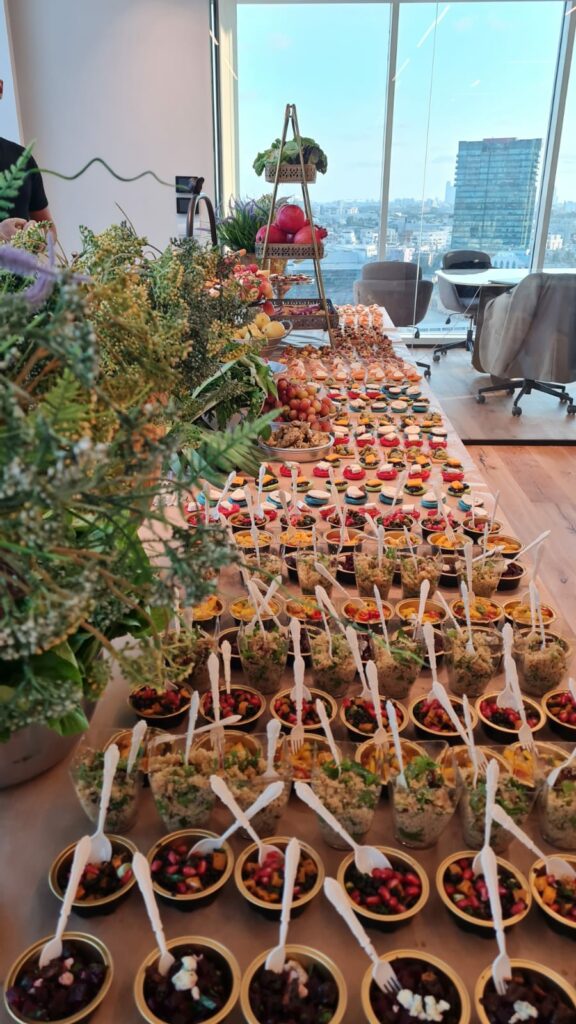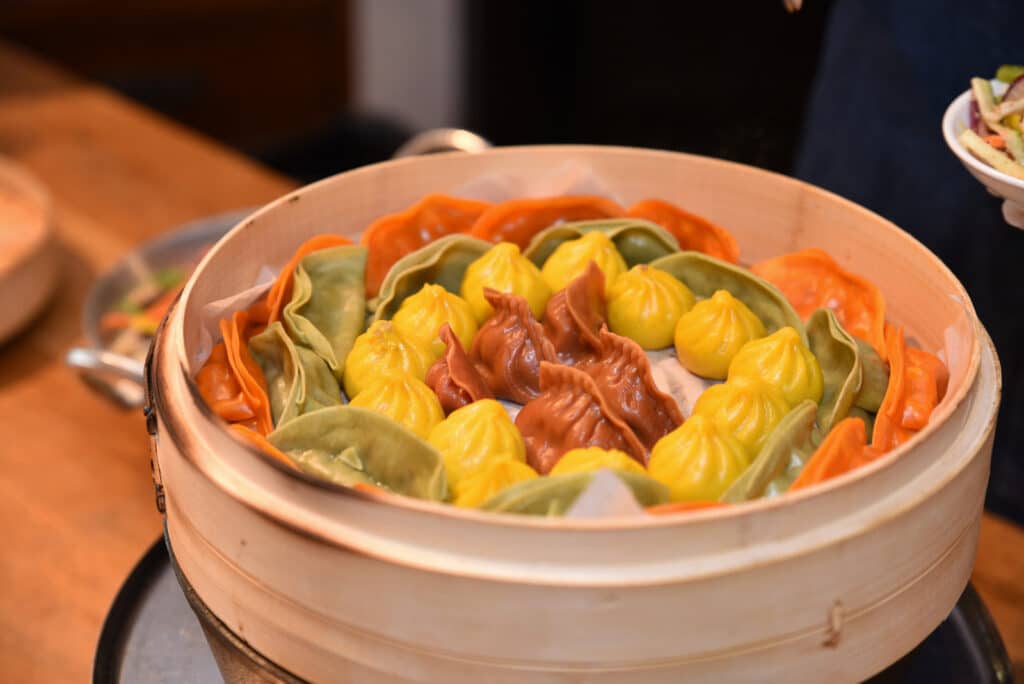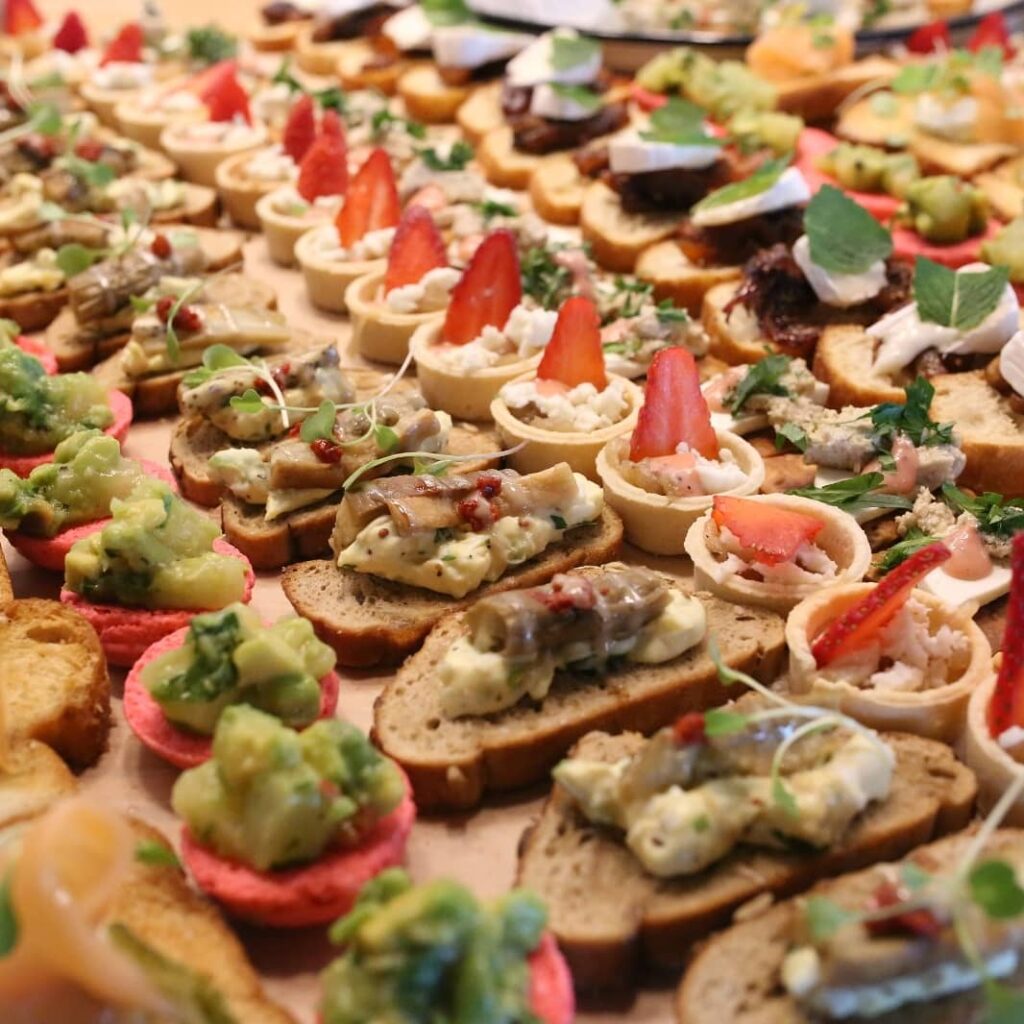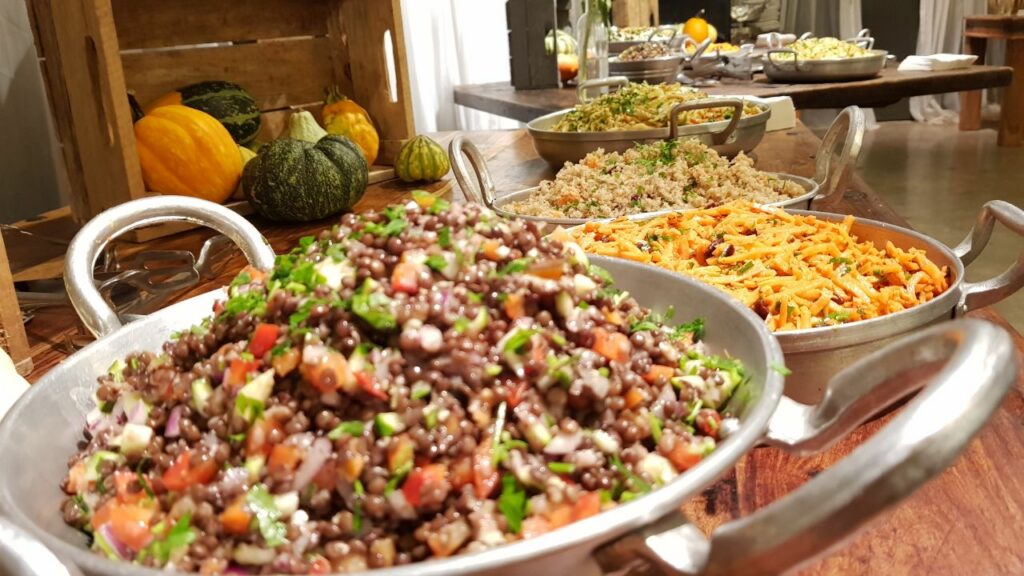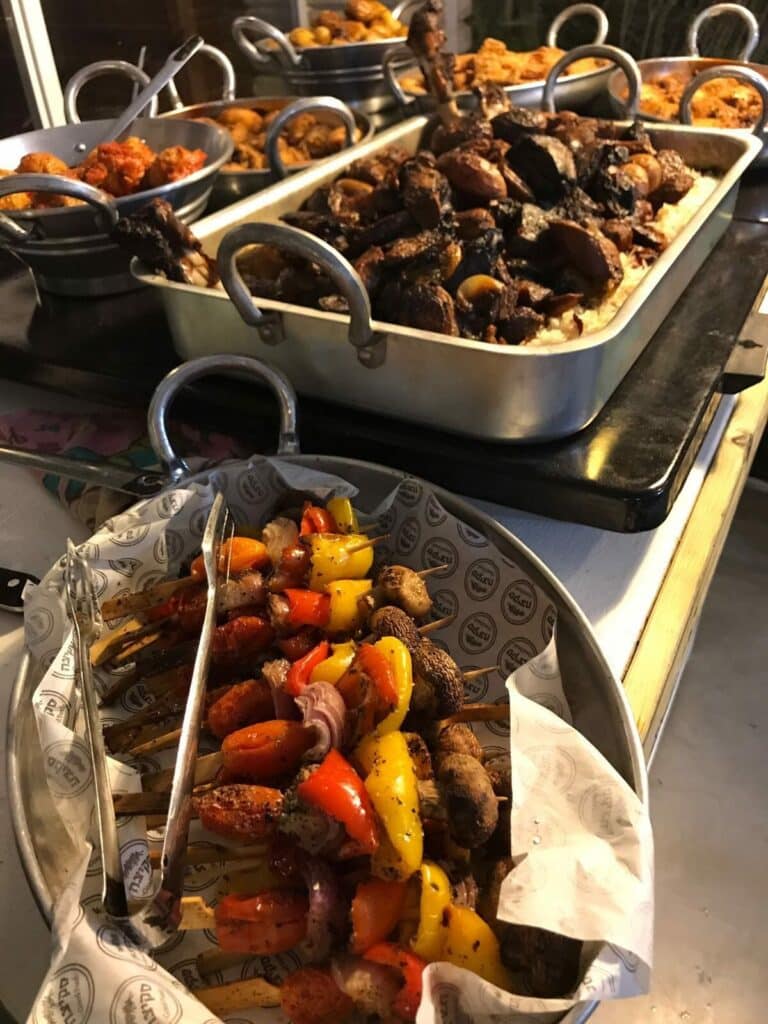Organizing a small event can be an exciting but daunting task. From finding the perfect venue to ensuring everyone is catered for, there’s a lot to consider. One of the most important elements in any event is the food, which needs to be carefully thought out and planned. Choosing the right catering for a small event requires careful consideration and attention to detail – but it doesn’t have to be overwhelming.
In this article, we’ll guide you through all the steps needed to make sure your event runs smoothly and that all your guests are well-fed and happy. We’ll provide helpful tips on how to select catering that’s tailored specifically to your event, taking into account factors such as budget, dietary requirements, and occasion.
We know that planning an event can seem like a Herculean task – but with our advice, you can rest assured that selecting catering will be one less thing on your ‘to-do’ list! Read on to find out more about how to choose catering for small events with ease and confidence.
1. Evaluate Your Event's Needs
Organizing a small event is like piecing together a jigsaw puzzle, with each detail requiring careful consideration. First and foremost, it’s important to evaluate the needs of your event. What type of food do you want? Are there any dietary restrictions you need to accommodate? What kind of atmosphere are you trying to create? Do you need servers or will guests serve themselves? Answering these questions can help narrow down your catering options.
It's also essential to understand the budget for catering. Establishing an upper limit helps ensure that the food selection and cost remain in sync with the overall event plan. Once you’ve determined how much you can afford to spend, research local caterers who offer packages within your price range. If possible, sample their food before making a decision.
Making sure that the catering aligns with both the vision for your event and its budget can be time-consuming but ultimately rewarding. With a little extra effort, you can rest assured knowing that your event’s culinary experience will be one that your guests won't soon forget. From here, it's time to move onto selecting a venue for hosting the event.
2. Understand Your Budget
Money is like water, it can be a source of life and energy for events, but if used incorrectly it can quickly become a major burden. When it comes to catering for small events, understanding your budget is key. It's a balancing act between ensuring you have enough food and not overspending.
First off, decide what type of event you're having as this will help determine the types of food you serve and how much money you'll need to spend. For example, if you're throwing a party with lots of guests, then you may need to look into larger portions or speciality items that come at a higher cost than regular items. On the other hand, if it's a smaller gathering then you won't need as much food and can likely get away with cheaper options.
Next up is knowing what types of food your guests will enjoy eating; this will help narrow down your choices so that you don't end up wasting money on meals that no one ends up eating. Talk to those attending the event beforehand to get an idea of their likes and dislikes – this way your catering decision can be tailored specifically to them and ensure everyone enjoys the meal. Additionally, when looking at prices compare different caterers in order to find the best deal possible – some may offer discounts or even free delivery which could save you quite a bit in the long run!
With these tips in mind, it's time to move onto researching catering options that fit both your budget and tastes.
3. Research Your Catering Options
Once you've determined your budget, it's time to research your catering options. Consider the type of event you are hosting and think about what type of food best fits the atmosphere. Do you want a buffet-style dinner or do you prefer a plated meal? Is this a formal event or can it be more casual? Knowing the answers to these questions will help narrow down which caterers fit your needs.
In addition to the type of food, take into account the caterer’s reputation. Read reviews from past customers and speak with people who have used them before. Ask if they had any issues with customer service or timeliness. It’s also beneficial to inquire about their portion sizes and make sure that each guest will receive enough food for their meal.
Finally, find out how much flexibility the caterer has with their menus. If someone has dietary restrictions, can they accommodate for that? Will there be enough variety for everyone in attendance? Even if you choose a pre-set menu, ask if there are any substitutions or add-ons that can be made. Being aware of all these factors will ensure that you select the right catering option for your small event.
4. Consider Menu Preferences
Choosing the right catering for small events is like finding the perfect diamond. It requires careful consideration and a sharp eye to ensure you make the right selection.
When selecting catering for a small event, it is important to consider menu preferences. Do you want traditional dishes or something more modern? Is there an emphasis on local ingredients or presentation? Will your guests have dietary restrictions that will need to be addressed? Taking your guests’ tastes into account can help you make the best choice when deciding on catering.
To further refine the menu, research what type of ingredients are typically used in the dishes. Are they fresh and seasonal, or pre-packaged and processed? Knowing exactly what goes into each dish will allow you to determine if it is suitable for your event and whether it meets your expectations in terms of quality.
With all these considerations in mind, you can then confidently move forward with examining portion sizes.
5. Examine Portion Sizes
Once you have identified the menu preferences of your guests, it's time to examine portion sizes. It's important to ensure that each guest is served the appropriate amount of food. Pay attention to the serving size recommended by caterers and adjust accordingly depending on the number of people attending your event. It’s also worth considering any dietary restrictions among your guests as this may impact what type and how much food is needed.
When deciding on portion sizes, it’s essential to keep in mind that there are no hard-and-fast rules set in stone. You should think about how much variety you want to offer, the atmosphere of your event, and the specific appetites of your guests when determining portions. For example, if you know some guests will have a hearty appetite or if you plan to serve multiple courses, then larger portions may be necessary.
Allocating sufficient resources for food is key for a successful event. Going into detail about portion sizes will help you make sure that everyone attending receives enough to eat and is satisfied with their meal. Now that you have considered menu preferences and portion sizes, it’s time to move onto analyzing delivery and setup options for your small event.
6. Analyze Delivery And Setup Options
Have you ever thought about how the delivery and setup of your catering could affect the success of your small event? Knowing how to properly coordinate these aspects can make all the difference.
When selecting a caterer for a small event, consider the delivery and setup options available. Some caterers will deliver and set up in-house, while others may subcontract out the work. If possible, it’s best to choose an experienced caterer who handles both delivery and setup themselves. This ensures that one group is responsible for their performance from start to finish. Also, be aware of any additional fees associated with delivery, such as mileage or early morning/late night charges.
Pay attention to the details of how food will be presented once it arrives at your event location. Ask questions about what linens, chafing dishes, plates, utensils, etc., will be provided so that there are no surprises onsite. It’s essential that everything is ready when guests arrive so they can enjoy an attractive presentation of their meal without waiting or disruption to your program.
Having examined portion sizes and analyzed delivery and setup options, it's now time to review catering staff requirements for a successful small event.
7. Review Catering Staff Requirements
Choosing the right catering for a small event requires careful consideration and planning; similarly, attention must also be paid to the catering staff requirements. Before settling on a caterer, it's important to review what type and number of staff is needed to make sure that the event runs smoothly.
Catering staff will typically include servers, bartenders, cooks, dishwashers, cleaners, and often security personnel as well. Depending on the size of the event and number of guests in attendance, more or fewer staff may be necessary. Additionally, some events may require specialized staffing such as Master Sommeliers or trained chefs for certain menu items.
When reviewing catering staff requirements, consider who will be responsible for delivering and setting up food at the event venue. Will they need any extra help with these tasks? Furthermore, look into whether additional services such as valet parking are available from the caterer. With all these elements in mind you can easily assess which caterer provides you with the best staff options for your small event. Ready to move onto investigating any specialty requirements?
8. Investigate Any Specialty Requirements
Once you've determined the catering staff requirements, it's time to investigate any specialty requirements. This could include any special ingredients or dietary restrictions that need to be taken into account. It's important to make sure the catering company you choose is able to accommodate all of these requests and deliver a quality meal.
If your event requires guests to have specific dietary needs, such as having vegan or vegetarian options, then it's important that your caterer is able to provide this food in an appealing way. Additionally, if you are hosting an event where alcohol will be served, make sure the caterer can provide a selection of drinks and can help with bar service if needed.
When selecting a caterer for your small event, it's essential that you consider all of these specialty requirements so that any guests with special dietary needs are catered for and everyone enjoys their meal. So take the time to ensure the caterer you select can meet each one of these needs before making a final decision. Moving on from here, it's now time to look into asking for referrals and reviews from previous customers.
9. Ask For Referrals And Reviews
Once you’ve done your research and evaluated the different options, it’s time to ask for referrals and reviews. It's important to get a feel of what kind of experience other people have had with the caterer, so you can make an informed decision. Don’t just take the words of one person, either – try to get as much information from as many sources as possible.
Check out online reviews and ratings if they are available. You can also ask friends or colleagues who have hired a catering service in the past for their opinion. If there is someone you know that has worked with the catering company you’re considering, ask them about their experiences too. This way, you can get an unbiased view on what to expect from them.
Finally, talk directly to the caterer and see if their attitude and approach match your vision for your event. Ask questions about pricing, menu options, delivery times, and anything else that may be relevant – this will help ensure that everything goes smoothly on the day of the event. With all this information in hand, you'll be ready to make your final decision.
10. Make Your Final Decision
Ah, the age-old conundrum: how to pick the perfect catering for small events? It's a daunting task that often leaves us scratching our heads and wondering where to start. But fear not, for we have come up with a foolproof plan for solving this problem once and for all! Step 10: make your final decision.
We've gone through this whole process, so surely it must be time to make a choice! After all the research and referrals, after weighing all the pros and cons – it's time to pick one and go with it. This is no small feat, but don't forget that you can always call off the deal if something doesn't work out quite right. So take your time, trust your gut, and go with what feels right!
With all that said, choosing catering for small events doesn't have to be such an arduous task. By following these nine steps – from researching options to asking for referrals – you can find yourself with just the right caterer in no time. So chin up and get searching – you'll soon be on your way to hosting a fantastic event!
Frequently Asked Questions
What Is The Average Cost Of Catering For A Small Event?
When it comes to hosting a small event, the cost of catering can be a big source of stress and worry. However, understanding the average cost for catering for small events can help you make an informed decision when it comes to choosing what type of catering and budget is best for your needs.
Generally speaking, the cost of catering for a small event will depend on several factors. These can include the number of guests, cuisine type, location, and staffing requirements. For instance, an event with fewer than 20 people may not require waiting staff or other services that would increase costs. On the other hand, if you’re hosting a larger gathering with more than 50 people, you may need to consider hiring waiters or additional kitchen staff.
As far as pricing goes, it's important to note that caterers often charge per person instead of setting one flat rate fee. As a result, you should expect to pay anywhere from $10-$25 per person for basic food service and around $50-$100 per person for more elaborate menus with higher-end ingredients. If alcohol is also served at your event, you should factor in an additional cost of roughly $5-$15 per drink as well.
Overall, getting an accurate estimate on the cost of catering for your small event will require some research and planning ahead—but doing so can help ensure that your small gathering runs smoothly without breaking the bank!
How Far In Advance Should I Book A Caterer?
Organizing a small event can be a daunting task, and it's easy to overlook the importance of booking a caterer. But when it comes to creating an unforgettable experience for your guests, selecting the right caterer should be at the top of your list.
When considering how far in advance you should book a caterer, it pays to plan ahead. It's best to start researching and arranging details with the caterer three to four months prior to the event date. This allows enough time for both parties to negotiate and plan appropriately, as well as giving you plenty of time to find a backup caterer if necessary.
To ensure everything goes smoothly on the day, make sure you communicate clearly with your caterer about any specific requirements or requests from your guests. Put all expectations in writing so that both parties understand their responsibilities before signing an agreement. Taking this extra step will give you peace of mind that nothing will go wrong on the day – leaving you free to enjoy your event!
How Many People Can Be Serviced By One Caterer?
It's important to consider the size of your event when choosing a caterer. Depending on the number of people attending, you may need to book multiple catering services or look for one that is able to service a large group. This article will discuss how many people can be serviced by one caterer.
Generally, the number of people that a single caterer can serve depends on several factors, such as the type of food they are providing and their experience. Some caterers specialize in small groups while others have the capability to serve much larger numbers. It's also important to remember that while some caterers may be able to accommodate more guests, they may not be able to provide quality meals for everyone at once due to limited resources.
When selecting a catering service for your event, it's wise to ask them how many people they can comfortably serve. They should be able to provide you with an estimate based on their experience and resources available. It's also advisable to check customer reviews and ensure that they have served similar events in the past and were able to meet customers' expectations satisfactorily. That way, you can rest assured that you're getting the best possible service for your event.
By taking into account all these factors and doing thorough research, you'll be able to find a reliable catering provider who can accommodate your needs and provide great food for your guests.
Are There Any Health And Safety Regulations That Need To Be Followed?
Choosing the right catering for small events can be a daunting task. It can seem like an insurmountable hurdle, but with a few simple steps it doesn't have to be! One of the most important factors in ensuring your event runs smoothly is understanding any health and safety regulations that need to be followed.
Health and safety regulations vary from country to country, so it's important to do your research ahead of time. Depending on the nature of your event, you may need to provide additional facilities such as washrooms or seating arrangements. You should also consult with local authorities to make sure that all necessary permits have been obtained. Food safety is another major concern, and you should ensure that all caterers are certified by the relevant food authority before hiring them.
It's also essential to agree on specific terms with your caterer before signing the contract. This includes any dietary requirements or allergies that must be addressed, as well as an agreed-upon pricing structure and payment plan. Finally, ensure that you are clear about expectations for set-up and clean-up times so there is no confusion or delay on the day of your event. Following these guidelines will help ensure your event runs without a hitch!
How Do I Know If The Caterer Is Experienced Enough To Handle My Event?
Finding the right caterer for your small event is a key step in making sure it goes off without any problems. The last thing you want is to hire someone who doesn't have enough experience to handle the job. To ensure that doesn't happen, there are some things you should consider when assessing potential caterers.
First, look at the caterer's portfolio and see if they have experience in providing catering services for events similar to yours. Ask them questions about their past work and make sure they understand exactly what you're looking for from them. It's also a good idea to ask for references from previous clients so you can get an idea of how reliable and experienced the caterer is in handling events like yours.
Finally, make sure the caterer has all the necessary certifications and licenses required by local health and safety regulations. You don't want to risk running into any issues with the law because of improper catering services. Make sure they are up-to-date on all relevant regulations and can provide appropriate documentation when needed. By taking these precautions, you'll be able to find a reliable and experienced caterer who will be able to handle your event with ease.
Conclusion
The key to choosing the right caterer for a small event is to plan ahead and research all of your options. The average cost of catering will depend on the size of your event and the type of food you are looking for, but it’s important to remember that quality is key. Make sure you book your caterer far enough in advance so they have time to prepare, and always factor in any health and safety regulations that must be followed. Lastly, make sure the caterer has enough experience to handle the size and scope of your event.
When selecting a caterer for a small event, it’s essential to consider the cost, timing, capacity, health and safety regulations, as well as their level of experience. By taking these factors into consideration when making your decision, you can ensure that your event will go off without a hitch. With careful planning and research, you can choose the perfect caterer for any small gathering.
No matter what type of event you are planning or what type of food you need served, choosing the right caterer is an important part of ensuring its success. By understanding how much it will cost, booking far enough in advance, factoring in health and safety regulations, and making sure your chosen caterer has enough experience for your needs – you can rest assured that everything will go as planned!
- 1. 1. Evaluate Your Event's Needs
- 2. 2. Understand Your Budget
- 3. 3. Research Your Catering Options
- 4. 4. Consider Menu Preferences
- 5. 5. Examine Portion Sizes
- 6. 6. Analyze Delivery And Setup Options
- 7. 7. Review Catering Staff Requirements
- 8. 8. Investigate Any Specialty Requirements
- 9. 9. Ask For Referrals And Reviews
- 10. 10. Make Your Final Decision
-
11.
Frequently Asked Questions
- 11.1. What Is The Average Cost Of Catering For A Small Event?
- 11.2. How Far In Advance Should I Book A Caterer?
- 11.3. How Many People Can Be Serviced By One Caterer?
- 11.4. Are There Any Health And Safety Regulations That Need To Be Followed?
- 11.5. How Do I Know If The Caterer Is Experienced Enough To Handle My Event?
- 12. Conclusion





